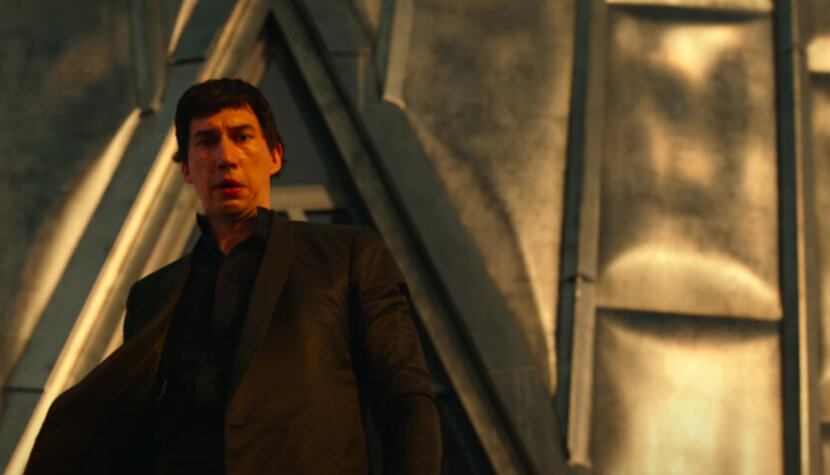MEGALOPOLIS. Coppola’s science fiction, or play it again, Francis

It’s more of a short essay full of diverse thoughts rather than a classic review. Because everything about the film has already been written, and its making has been described in numerous, really numerous articles. Besides, the whole Megalopolis is one big dichotomy: there’s a lot of cinematic good and evil here, but it’s still a film worth experiencing. Especially since we’re likely dealing with Coppola’s last work.
I. Rome is eternal
Someone will someday write a book about Coppola’s fascination with the Roman Empire. Because it’s somewhat grotesque that such a renowned director has wanted to create a metaphorical film for about fifty years, where Roman aesthetics and political system find their second life in contemporary United States. Yes, that’s what this film is about – the action takes place in the United States in a city called “New Rome,” which seems to be the most foolish and ingenious idea of this century. But it works – once you buy into the convention, you start having a great time.
This doesn’t change the fact that, on the other hand, this idea shouldn’t really surprise anyone. Why? Over the past few decades, his filmography hasn’t been limited to just The Godfather trilogy. Think of the campy (meaning: bizarrely extravagant) Dracula, a drama combining Gothic horror with melodrama. It’s a film lying at a completely different genre antipode than, for example, The Conversation. Yet, Coppola decided to film Bram Stoker’s work and simply have fun with it.

Megalopolis is a consequence of these projects. An example that our favorite creator has always had a touch of the mad artist in him. It’s good for him that after years he managed to finish this project. Even if he made the film for himself and in doing so fulfilled his wet dream of the triumphant return of Imperial Rome. After all, this concept is astonishing: it’s even funny when Adam Driver is addressed as “Caesar,” Jon Voight as “Crassus,” and Giancarlo Esposito as “Cicero.” What’s more, you can feel and see that everyone fully believed in Coppola’s vision, even if they didn’t know the script beforehand and entered this project completely blind. Everyone has their hidden desires, and it just so happened that Coppola stopped being ashamed of his. He went all out, because at this stage he probably doesn’t care anymore. He wanted to make a utopian allegory with a political message? Why not: he simply spent his own money and finished his masterly project. That’s the whole philosophy.
II. The director and his troupe of actors
This is probably something that’s currently talked about little: Coppola can brilliantly direct his actors and actresses. For Megalopolis, he invited the biggest powerhouses in the industry and even played with the roles assigned to them. Esposito is not fully another scoundrel straight out of Breaking Bad, Adam Driver seems more sensitive than ever, and Dustin Hoffman in his tertiary role plays a degenerate “fixer,” which is simply out of his acting sensibility. Amidst all this turmoil, we also have Jon Voight, who probably plays the most playful role of his entire career.
However, the whole show is stolen by Aubrey Plaza, juggling the convention of a deadly, predatory woman always lurking for her prey at the least expected moment. And then, when she really needs something to fulfill her plans, she becomes a completely ruthless and destructive force. By the way, in the context of Plaza, there’s another issue – the age difference between the actress and the director, which, in generational terms, probably shouldn’t serve either of them. It’s rather unheard of that after so many years, the director can still so perfectly prepare his actress for such a daring and captivating role. And yet theory loses in confrontation with practice. The screen and the image speak for themselves.

III. A farewell concert
During the end credits, one wanted to shout: “Play it again, Francis.” Give us more, don’t leave us with your last work, let us enjoy the cinema; the moment we just entered; the story that suddenly began to write itself before our eyes. Just as Woody Allen in his 1972 classic lamented that he would never be like Rick Blaine from Casablanca, we regret that a certain era is just ending. But at the same time, we are grateful that this chapter in film history ended in such an unexpected and – in a way – in its own pop-crazy style.
Now theoretically, Megalopolis has no distributor, which means that the Cannes festival currently seems to be the only place where we have a chance to see the monumentality of the film. This story would verge on some nihilistic epicness if it turned out that Megalopolis never appears in theaters – in a few years in cinephile circles it would be spoken of as a mythical legend. In the meantime, we wait for the course of events and observe how time will treat one of Coppola’s children, which he has cared for so long.

